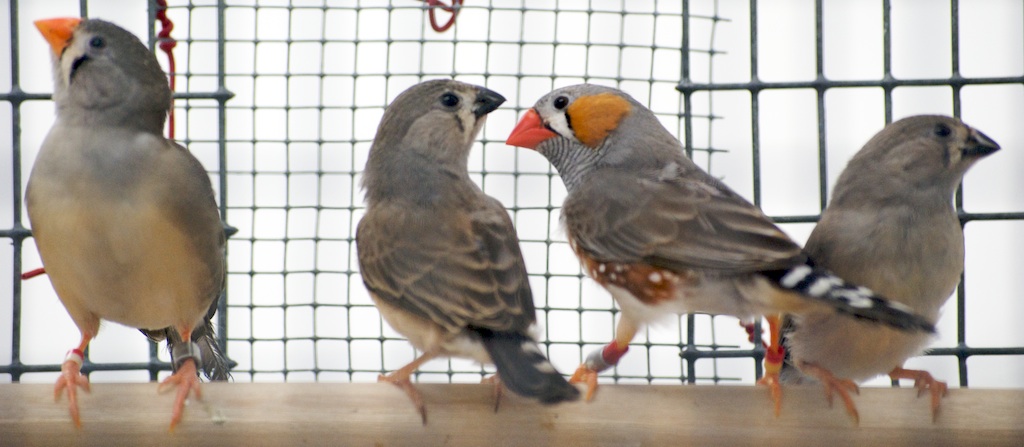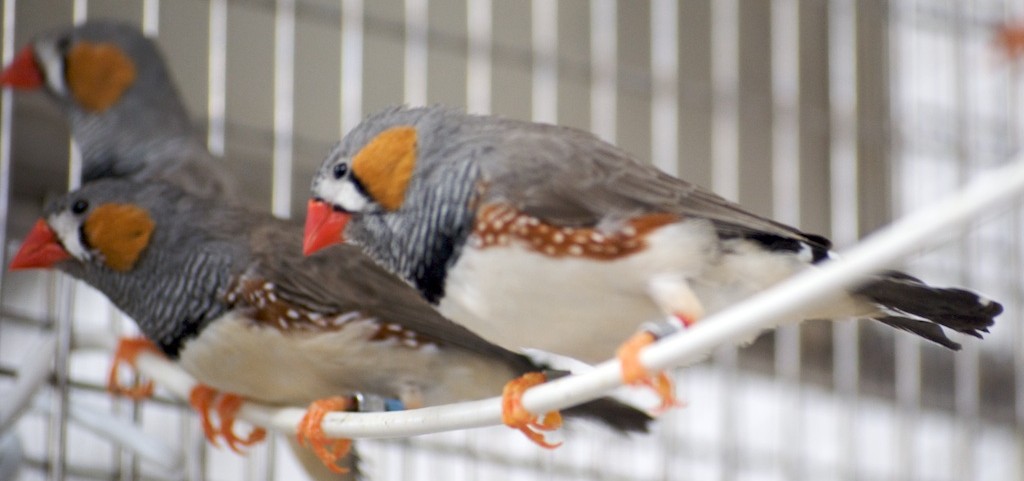 Working with songbirds affords opportunities for studying the entire developmental trajectory of vocal learning at a fine level of detail. We can assess social influences on vocal learning in highly controlled ways that would not be possible with human infants.
Working with songbirds affords opportunities for studying the entire developmental trajectory of vocal learning at a fine level of detail. We can assess social influences on vocal learning in highly controlled ways that would not be possible with human infants.

We study song development in the zebra finch, Taeniopygia guttata. They are a highly social species; young birds learn songs from adult males, typically their fathers. Juveniles memorize songs and gradually learn to produce them via subsong and plastic song. They imitate, with a high degree of fidelity, their fathers’ song. What aspects of social interaction direct this imitation? While the vocal changes leading to song have been well-studied, links to social interactions have not. However, in other songbirds (e.g. the brown-headed cowbird, Molothrus ater), immature vocalizing produces immediate social reactions that facilitate song learning. In our initial studies, we are investigating whether social interactions may guide vocal learning in the zebra finch. As in our human infant research, we are focusing on the microstructure of social interactions and investigating whether they are influenced by the immature vocalizations of the juveniles.